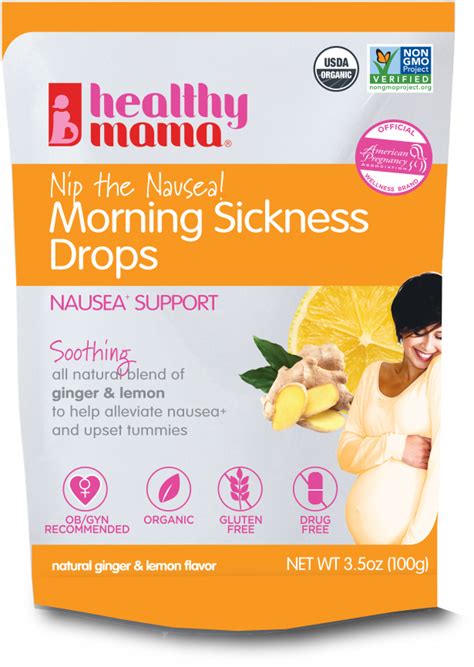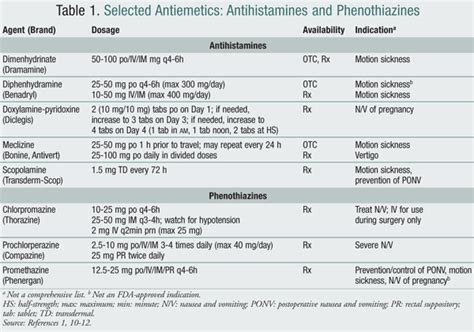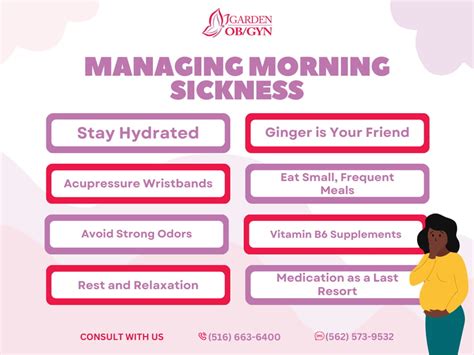Intro
Morning sickness is a common symptom experienced by many women during the early stages of pregnancy. It is characterized by feelings of nausea and vomiting, which can be triggered by various factors, including hormonal changes, food odors, and emotional stress. While morning sickness can be uncomfortable and debilitating, there are several medications and remedies available to help alleviate its symptoms. In this article, we will explore the various options for morning sickness nausea medication, their effectiveness, and potential side effects.
Morning sickness is a natural part of pregnancy, but it can have a significant impact on a woman's daily life. It can cause dehydration, weight loss, and fatigue, making it essential to manage its symptoms effectively. There are several factors that contribute to morning sickness, including hormonal changes, genetics, and environmental factors. Understanding these factors can help women and their healthcare providers develop a plan to manage morning sickness and prevent its complications.
The symptoms of morning sickness can vary from woman to woman, but they often include nausea, vomiting, and aversion to certain foods or smells. In some cases, morning sickness can be severe and persistent, leading to dehydration and other complications. It is essential to seek medical attention if morning sickness symptoms are severe or persistent, as they can have a significant impact on a woman's health and well-being. With proper treatment and management, women can alleviate their morning sickness symptoms and enjoy a healthy pregnancy.
Morning Sickness Nausea Medication Options

Prescription Medications for Morning Sickness
Prescription medications, such as ondansetron and metoclopramide, are often prescribed for women who experience severe morning sickness symptoms. These medications can help alleviate nausea and vomiting, but they may have side effects, such as headaches and constipation. It is essential to discuss the potential benefits and risks of prescription medications with a healthcare provider before taking them.Natural Remedies for Morning Sickness

Lifestyle Changes for Managing Morning Sickness
Lifestyle changes can also play a significant role in managing morning sickness symptoms. These changes include eating small, frequent meals, avoiding triggers, and staying hydrated. Eating small meals can help reduce nausea and vomiting, while avoiding triggers, such as strong smells and spicy foods, can help prevent morning sickness symptoms. Staying hydrated is essential, as dehydration can exacerbate morning sickness symptoms.Benefits and Risks of Morning Sickness Nausea Medication

Steps to Take Before Taking Morning Sickness Nausea Medication
Before taking morning sickness nausea medication, it is essential to take several steps. These steps include consulting a healthcare provider, discussing potential risks and benefits, and exploring alternative remedies. Consulting a healthcare provider can help women determine the best course of treatment for their morning sickness symptoms. Discussing potential risks and benefits can help women make informed decisions about their treatment options. Exploring alternative remedies can help women find natural and effective ways to manage their morning sickness symptoms.Practical Tips for Managing Morning Sickness

Statistical Data on Morning Sickness
According to statistical data, morning sickness affects up to 85% of pregnant women. The symptoms of morning sickness can vary in severity, but they often peak between 6-12 weeks of gestation. While morning sickness can be uncomfortable and debilitating, it is essential to remember that it is a natural part of pregnancy. With proper treatment and management, women can alleviate their morning sickness symptoms and enjoy a healthy pregnancy.Conclusion and Final Thoughts

What are the most common symptoms of morning sickness?
+The most common symptoms of morning sickness include nausea, vomiting, and aversion to certain foods or smells.
What are the best morning sickness nausea medication options?
+The best morning sickness nausea medication options include over-the-counter medications, such as vitamin B6 and doxylamine, and prescription medications, such as ondansetron and metoclopramide.
Can natural remedies help alleviate morning sickness symptoms?
+Yes, natural remedies, such as ginger, acupuncture, and aromatherapy, can help alleviate morning sickness symptoms.
What lifestyle changes can help manage morning sickness symptoms?
+Lifestyle changes, such as eating small, frequent meals, avoiding triggers, and staying hydrated, can help manage morning sickness symptoms.
How can I determine the best course of treatment for my morning sickness symptoms?
+Consulting a healthcare provider can help you determine the best course of treatment for your morning sickness symptoms.
